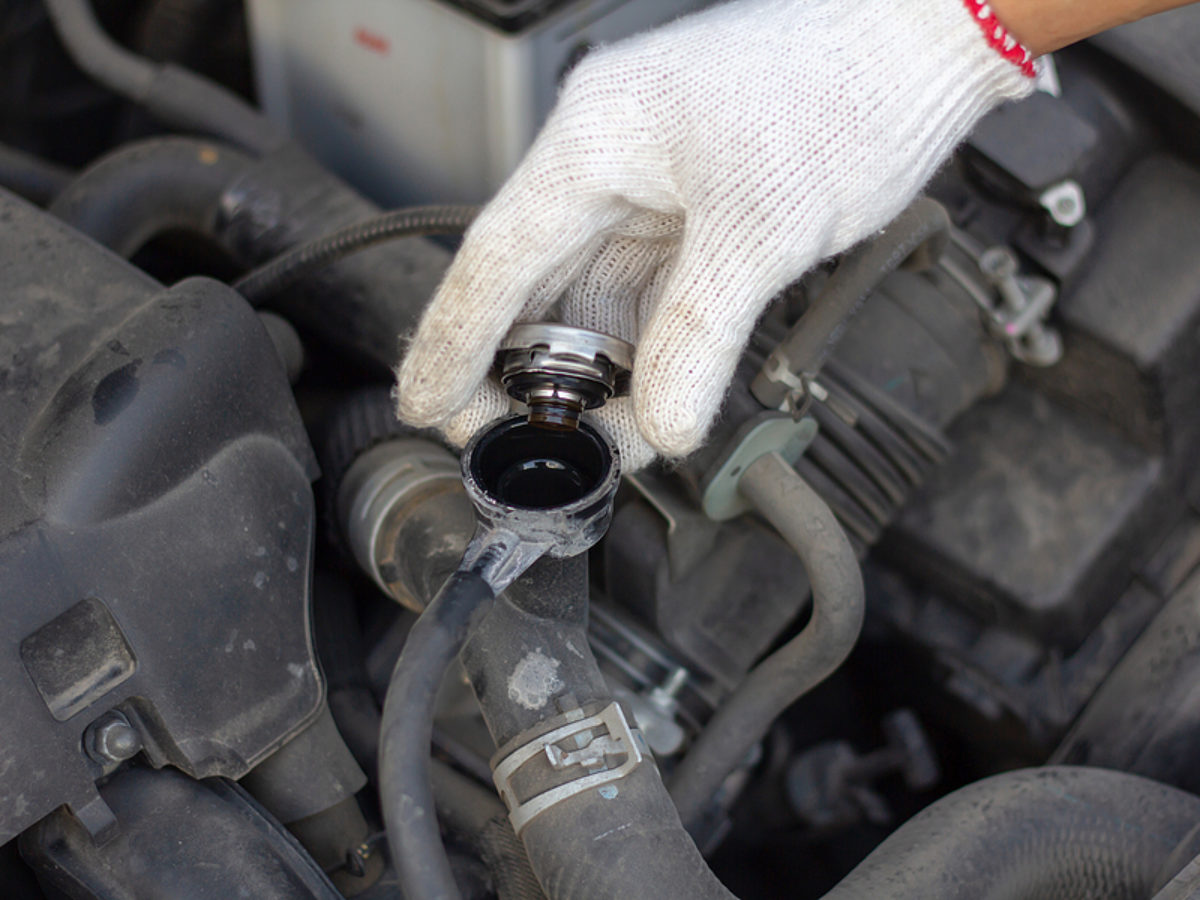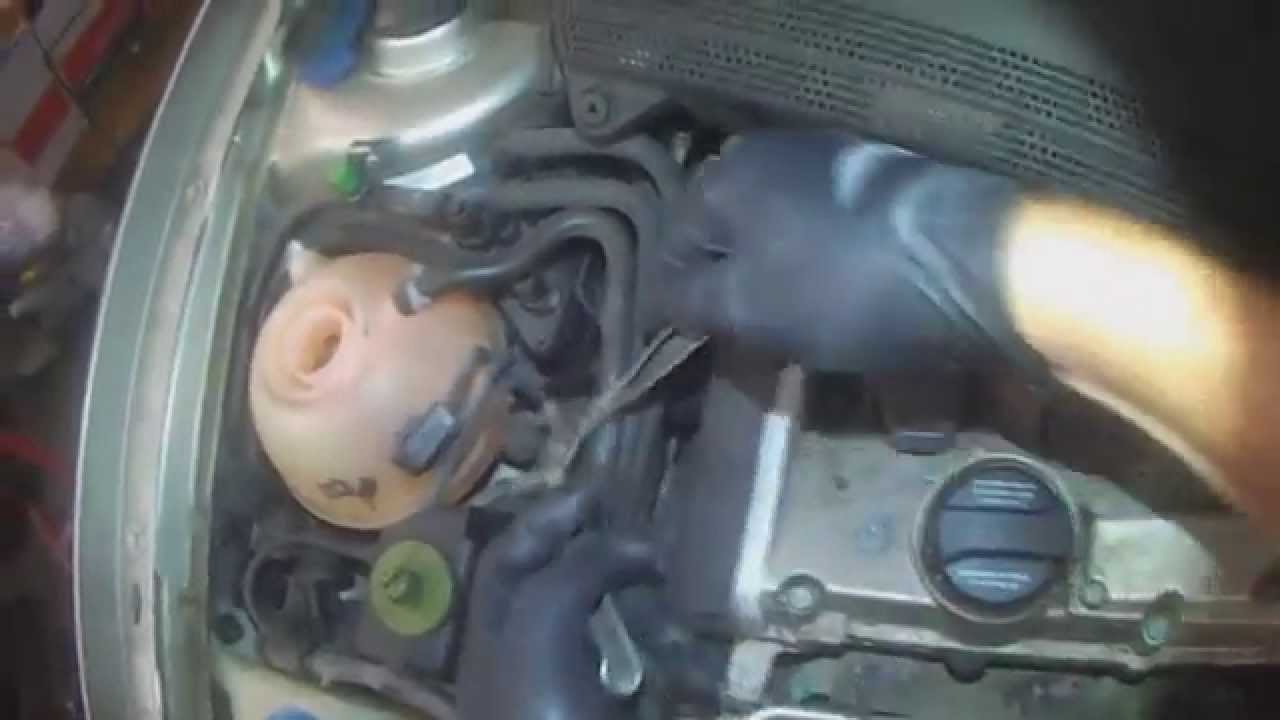If you need to replace the coolant flange on your Volkswagen, it will cost between $200 and $300. This is a relatively simple repair that can be done at home with the right tools. However, if you do not feel comfortable doing the repair yourself, you can always take it to a mechanic.
If your VW is leaking coolant, it’s likely because the coolant flange needs to be replaced. The good news is that this is a relatively inexpensive repair. The cost of the replacement flange will vary depending on the model of VW, but it should be around $100 or less.
If you’re handy with tools, you can replace the flange yourself in about an hour. Otherwise, it’s best to leave this repair to a professional mechanic.
Volkswagen Passat Coolant Flange Repair
Car Leaking Antifreeze
It’s never a good sign when you see a puddle of bright green liquid beneath your car. If your car is leaking antifreeze, it’s important to take action quickly to avoid major damage to your engine.
Antifreeze, also known as coolant, is an important fluid in your car’s engine.
It helps regulate the temperature of the engine and prevents it from overheating. When antifreeze leaks out of the system, it can cause the engine to overheat and sustain serious damage.
If you notice that your car is leaking antifreeze, take it to a mechanic right away.
They will be able to identify the source of the leak and make the necessary repairs. In some cases, a simple sealant may be all that’s needed to fix the problem. However, more serious leaks may require replacement parts or even a new radiator.
Don’t ignore a leaking antifreeze problem in your car! Taking quick action will help prevent costly repairs down the road.
Radiator Leak
If your car is leaking radiator fluid, it’s important to take action quickly. Radiator fluid (also called coolant) helps keep your engine cool, so if there’s a leak, it can cause your engine to overheat. This can lead to serious damage or even complete engine failure.
There are a few signs that you may have a radiator leak:
-Your temperature gauge is reading higher than normal
-You see puddles of radiator fluid under your car when you park
-Your engine is overheating, even when you haven’t been driving for long
-There’s steam coming from under the hood of your car
If you notice any of these signs, it’s time to take your car in for repair.
The sooner you catch the problem, the easier and less expensive it will be to fix.

Credit: www.cashcarsbuyer.com
How Much Does It Cost to Replace a Coolant Outlet Flange?
If your car is leaking coolant from the outlet flange, then you’ll need to replace it. The cost of the replacement part will vary depending on the make and model of your car, but it should be relatively inexpensive. To install the new flange, you’ll need to remove the old one and then install the new one in its place.
The process is fairly straightforward and shouldn’t take more than a few minutes.
What is a Coolant Flange?
A coolant flange is a type of pipe fitting that is used to connect two pieces of piping together. It is typically made from brass or stainless steel and has a smooth, rounded surface. The coolant flange is designed to allow for a tight seal between the two pipes, preventing leakage and allowing for proper airflow between the two sections of piping.
How Much Does It Cost to Fix a Coolant Hose Leak?
Assuming you have a coolant hose leak, the cost to fix it would depend on the severity of the leak. A small leak may only require a sealant, which could cost under $100. A bigger leak may require replacement hoses, which could cost between $200-$600.
If your vehicle has an radiator cooling system, that will also need to be repaired or replaced and could add an additional $1000 or more to the total repair bill.
Why is My Vw Golf Losing Coolant?
If you find that your VW Golf is losing coolant, there are a few potential reasons why. First, it could be simply due to evaporation and/or leaks. You can check for leaks by looking for wet spots on the ground under your car or by checking the hoses and connections for any cracks or looseness.
If you do find a leak, it’s important to get it fixed as soon as possible as continued leaking can lead to engine damage.
Another possibility is that the coolant level in the overflow tank is low. This isn’t necessarily indicative of a problem, but if the coolant level continues to drop even after topping off the overflow tank, there may be an issue with the cooling system itself that will need to be addressed.
Finally, it’s also possible that your VW Golf is losing coolant due to a more serious issue such as a head gasket leak or engine overheating. If you notice steam coming from under the hood or if your engine temperature gauge is reading higher than normal, these could be signs of a bigger problem and you should have your car checked out by a mechanic as soon as possible.
Conclusion
The cost to replace a VW coolant flange can be significant, but it is a necessary repair. The best way to avoid the high cost is to have the flange replaced before it fails. This will prevent any damage to your engine and save you money in the long run.

